The Week, November 16-22
A look back at the main developments in Romania this past week

Roxana Vasile, 21.11.2015, 12:58
The Priorities of the New Government
The new Government of Romania, headed by Dacian Ciolos, started working after receiving the confidence vote of a large Parliamentary majority. In the medium and long run, the Government is to draw up the 2016 budget bill and to organise the parliamentary and local elections due next year. The priorities also include a 10-year investment plan, a national development strategy, reforms in public education and healthcare.
The Government also wants to strengthen the role of the country in the EU and NATO, to consolidate and extend the strategic partnership with the USA, and to support the European accession efforts of the neighbouring Republic of Moldova. Romanians expect quite a lot from the new Cabinet, made up of experts from the private sector or European institutions. President Klaus Iohannis has briefly presented these expectations:
Klaus Iohannis: “This is your chance to prove how to govern Romania properly, in a very complicated year and with high expectations from the society and from the people. But you must also be aware of the expectations of politicians. I firmly believe that everybody wants everything to run like clockwork, and for this to happen we need an efficient government
The Social Democratic Party Reviews Its Position
Monday was a moment of review and reflection for the Social Democratic Party, whose former head, Victor Ponta, led a succession of coalitions with his party at the forefront for the last 4 years. The new chairman, Liviu Dragnea, did the accounting for his partys period of leadership, saying that the successive Ponta cabinets took over in 2012 an economy struggling out of crisis, managing to set economic growth to 3.8%, one of the highest in the EU. Right now the budget deficit is 1.5% of the GDP, as compared to 5.4% in 2011. Liviu Dragnea went on to provide more detail:
Liviu Dragnea: “Romania borrowed little from abroad and the domestic market, because the economy went well. The GDP went from 133 billion Euro to 158 billion Euro in 2015. In this way, the Ponta Government managed to have money for two things that are fundamental: to increase purchasing power for most Romanians, by boosting income and reducing taxation, and to bolster business by correct measures included in the Fiscal Code.“
Many, however, blame Ponta for a perpetually conflicting relationship with former president Traian Basescu, to the detriment of the country, for alleged corruption, and for losing the run for the presidency in 2014.
Postal Voting for Romanians Living Abroad
Romanias Constitutional Court ruled unanimously that the new law on postal voting is in conformity with the countrys Constitution, and President Klaus Iohannis endorsed it on Thursday. The document provides for the voters with their residence abroad wishing to cast their votes to register with the Election Registry by means of an application filed personally or sent by mail to the diplomatic mission or consulate in their country of residence. Registration is not available on-line.
The alternative offered by postal voting aims to fix the irregularities marring the November 2014 presidential elections, and to allow thousands of Romanians to express their option. The first application of the law comes in next years parliamentary elections. If it proves itself, it may be broadened to apply to the presidential and European Parliament elections as well.
Romania and the Fight against Corruption
Terrorism is effective only when it strikes fear into the hearts of people, says president Klaus Iohannis, referring to last weeks tragic terrorist attacks in the French capital city, which also killed two Romanians.
Klaus Iohannis: “If we were to let ourselves be overwhelmed by fear, only then would terrorists achieve their true goal, and we shouldnt let this happen. We should not let xenophobia, ultra-nationalism and chauvinism govern our societies. On no account must we allow this fear to breed hate speech against a religious community that was in no way related to the attacks.
An ally and friend of France at NATO and EU level, Romania has joined in the measures adopted by the international community in an attempt to prevent such tragic events from happening. The president said that no special measures will be taken concerning the Muslim population in Romania, out of respect for ethnic and religious minorities. Most Tartar and Turkish ethnics are clustered in the south-east, and the 70,000 Muslims residing in Romania are a model of integration and loyalty towards the Romanian state.
Colectiv Fire Death Toll Rises
Three weeks after the Colectiv nightclub fire in Bucharest, the death toll continues to rise, closing in to the 60 mark. Of the 40 patients with burn injuries being treated in hospitals in Bucharest, over 10 are in critical care. Another 30 patients were transfered to medical units abroad. The fire at the Colectiv nightclub broke out during a rock concert attended by several hundred people. A large number of people died from their burn injuries, while many others after becoming intoxicated with a deadly mix of gases resulted from the fire.




























